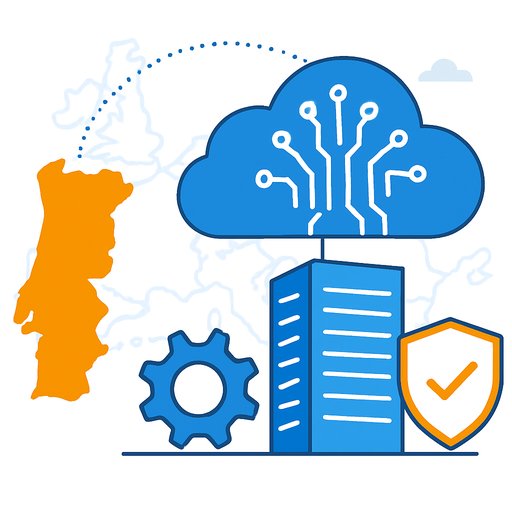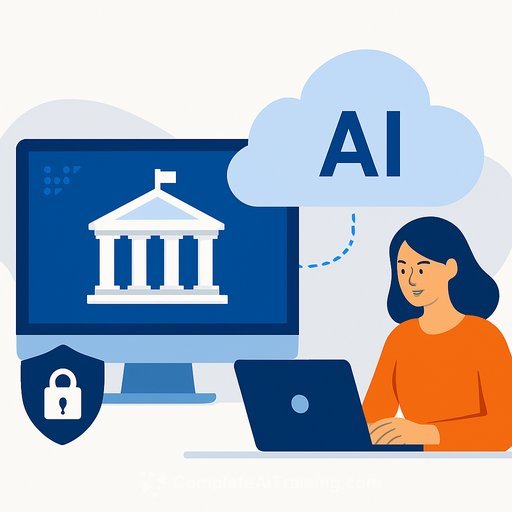Portugal adopts national AI-centered data centre strategy and sovereign cloud plan
Portugal will adopt a national strategy for data centres focused on artificial intelligence, alongside a national strategy for a sovereign cloud. The announcement came from Deputy Minister for State Reform, Gonçalo Matias, during committee hearings tied to the State Budget for 2026.
The government is responding to growing interest from large AI investments-referred to as "gigafactories"-and will create pre-licensed zones for data centres. A sovereign cloud infrastructure will also be built in coordination with other ministries.
What this means for public sector leaders
This move can accelerate digital services, strengthen data control, and streamline large AI workloads. To capture the benefits without creating new risks, agencies should prepare now.
- Data classification and residency: update policies for confidential, restricted, and public data; map what must stay within sovereign infrastructure.
- Workload placement: define which systems go to sovereign cloud vs. commercial providers; document portability requirements up front.
- Procurement: standardize SLAs, exit plans, data portability, and cost models across ministries to avoid lock-in and duplication.
- Security: enforce encryption with government-held keys, zero-trust access, continuous monitoring, and joint incident response with national SOCs.
- Compliance: ensure audit trails, retention schedules, and lawful access controls match GDPR and sector rules.
- Sustainability: set targets for PUE/WUE, heat reuse, renewable PPAs, and transparent reporting.
- Infrastructure: plan for grid capacity, water stewardship, and diverse fiber routes; prioritize sites with proximity to backbone networks.
- Skills: build cloud, data, and AI operations capability within government; budget for training and certification.
Pre-licensed zones for data centres: what to expect
Pre-licensing can compress timelines by packaging land-use, environmental, and utility readiness. Expect clearer rules, faster permits, and standardized requirements.
- Site readiness: power availability and substation timelines; multiple fiber paths; flood/fire risk controls.
- Permitting: predictable schedules, single points of contact, and threshold-based environmental assessments.
- Standards: alignment with ISO/IEC 27001, EN 50600, and energy efficiency KPIs.
- Community impact: traffic planning, local hiring, and heat reuse for district heating where feasible.
Sovereign cloud: core design principles
The sovereign cloud should prioritize control, transparency, and interoperability so agencies can run sensitive workloads with assurance.
- Data residency and jurisdictional control enforced by design.
- Encryption with sovereign key custody and auditable key lifecycle.
- Independent control plane and clear separation from non-sovereign services.
- Open formats, open APIs, and tested portability to avoid lock-in.
- Certification and continuous audit against EU-level security baselines.
- Operational resilience: multi-region failover, tested DR, and clear RTO/RPO.
Immediate steps for ministries and municipalities
- Appoint an executive owner and cross-functional team (IT, legal, procurement, security, finance).
- Inventory critical workloads and data; tag for residency, sensitivity, and continuity needs.
- Run two pilots: one AI-heavy workload and one high-sensitivity system in a sovereign environment.
- Prepare budget lines for migration, training, and security upgrades in OE2026.
- Update procurement templates with sovereign-by-default clauses for sensitive data.
- Coordinate early with energy, environment, and telecom regulators on site and capacity planning.
Policy and compliance touchpoints
As frameworks solidify, expect alignment with EU-level security and cloud guidance. Two useful references:
Building capability
Government teams will need practical skills to plan, procure, and operate AI and cloud services with confidence. If you're structuring a training path by function or role, this curated catalog can help.
Explore AI training by job role
The opportunity is clear: faster services, stronger data control, and better conditions for strategic investment. The work now is to set standards, pick early pilots, and move with discipline so benefits show up in this budget cycle, not the next.
Your membership also unlocks:






